
The BBC Radiophonic Workshop was one of the sound effects units of the BBC, created in 1958 to produce incidental sounds and new music for radio and, later, television. The unit is known for its experimental and pioneering work in electronic music and music technology, as well as its popular scores for programmes such as Doctor Who and Quatermass and the Pit during the 1950s and 1960s.
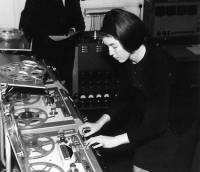
Delia Ann Derbyshire was an English musician and composer of electronic music. She carried out notable work with the BBC Radiophonic Workshop during the 1960s, including her electronic arrangement of the theme music to the British science-fiction television series Doctor Who. She has been referred to as "the unsung heroine of British electronic music", having influenced musicians including Aphex Twin, the Chemical Brothers and Paul Hartnoll of Orbital.

Incesticide is a compilation album by the American rock band Nirvana. It consists of their 1990 non-album single "Sliver", B-sides, demos, outtakes, cover versions, and radio broadcast recordings, and as such is not the official follow-up to the band's breakthrough album, Nevermind. The album was released on December 14, 1992, in Europe, and December 15, 1992, in the United States. It eventually reached number 39 on the Billboard 200.
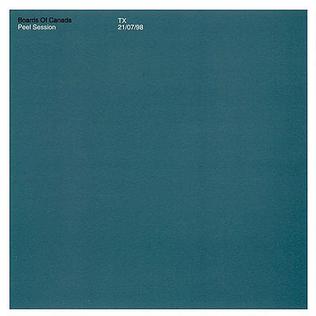
Peel Session is an EP by Boards of Canada, featuring the tracks played on their 1998 Peel Session broadcast on BBC Radio 1. It was originally released on 11 January 1999 as a 12" and CD by Warp Records, with catalogue numbers WAP114 and WAP114CD, respectively.
Strange Fruit Records was an independent record label in the United Kingdom.

Hefner were a British indie rock band formed in east London in 1995. They were active from about 1996 until 2002; since then they have played together only once, for a tribute to the DJ John Peel, who was a strong supporter of theirs.

Heart and Soul is a box set by English rock band Joy Division containing nearly every track the band recorded between 1977 and 1980. The first two discs contain almost their entire studio output, including the albums Unknown Pleasures and Closer, along with singles and compilation appearances. Discs three and four collect rare demos and live recordings, many of which were previously unreleased. All tracks are digitally remastered. It reached #70 in the UK.
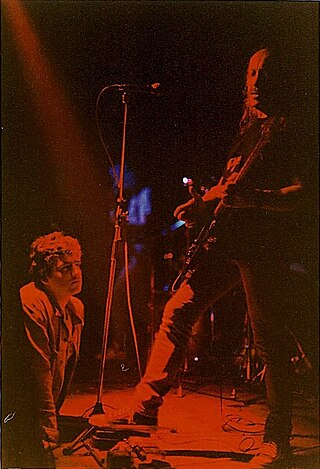
The Groundhogs were an English blues and rock band founded in late 1963 in London. Named after John Lee Hooker's song "Groundhog's Blues", they were part of the burgeoning British rhythm and blues scene, backing Hooker on his album ...And Seven Nights. They were predominantly a power trio of Tony McPhee, Peter Cruickshank (bass) and Ken Pustelnik (drums), with Clive Brooks replacing Pustelnik in 1972 until the band split in 1974. They issued seven albums via Liberty/UA, including the UK Top 10 Thank Christ for the Bomb, Split and Who Will Save the World?.
Magnétophone are an electronic/art rock band originating from Birmingham, England, composed of Matthew J Saunders and John Hanson. Since their inception in the mid-1990s they have released two albums, I Guess Sometimes I Need to Be Reminded of How Much You Love Me and The Man Who Ate the Man, plus numerous singles and EPs and are currently signed to the record label 4AD. Magnétophone rose to international recognition out of a period of vibrant musical activity in the second city, which also spawned contemporaries Broadcast.
The Joy Division Peel sessions are a series of sessions recorded by English post-punk band Joy Division for John Peel's radio show on BBC Radio 1 between January and November 1979.

Peel Sessions is an EP by the San Diego, California rock band Hot Snakes, released in 2005 by Swami Records. It was recorded in the Fall of 2004 while the band was on tour in the UK, for broadcast on BBC Radio 1's John Peel program. Hot Snakes would be one of the last groups to record such a session, as Peel died shortly afterwards. It is also the only Hot Snakes release not to feature artwork created by singer/guitarist Rick Froberg.

The Text of Festival is an archive album by Hawkwind consisting of BBC sessions and live performances between 1970 and 1971. It was originally released in 1983 after the band had exited their Active Records contract, and has continuously been repackaged and retitled ever since.
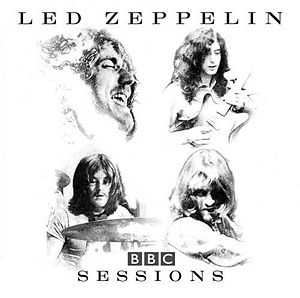
BBC Sessions is a compilation album featuring studio sessions and a live concert recorded by English rock group Led Zeppelin for the BBC. It was released on 17 November 1997, by Atlantic Records. Disc one consists of material from four different 1969 BBC sessions. Disc two contains most of the 1 April 1971 concert from the Paris Theatre in London. Disc three was only included in a limited run of album releases and features rare interviews from 1969, 1976/1977, and 1990.

The Southern Death Cult is a compilation album by British gothic rock band Southern Death Cult. It is a collection of studio outtakes, demos and live recordings by the band, released originally in 1983, after the band had broken up.

Joy Division The Complete BBC Recordings is a collection of the two Peel Sessions recorded by Joy Division, two songs from the BBC Television programme Something Else and a live interview. It was released in 2000. The album was re-released as "Before and After – The BBC Sessions" in 2004, the Joy Division tracks included were the same, but it also contained a New Order album. The entire track listing of the album was later released as the second disc in the UK edition of The Best of Joy Division in 2008.
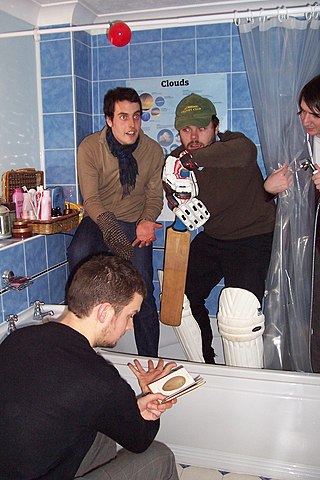
Brigadier Ambrose are an alternative pop band from Chatham, England. After releasing a series of digital only singles, playing various festivals, and recording sessions for BBC Radio One at Maida Vale, the band released their debut and only album to date Fuzzo in early 2010 through their own Brigadier Records. Fuzzo was entered into the Mercury Music Prize for 2010 but not short-listed. The band were then inactive for several years, until regrouping in early 2015, with the single "Jambon Dandy" released in June 2015.
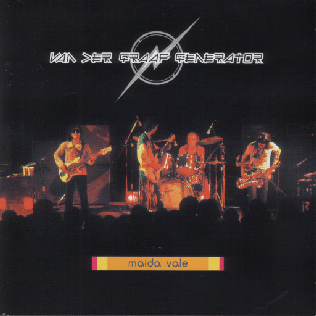
Maida Vale: The BBC Radio One Sessions is a compilation album by Van der Graaf Generator, containing eight songs from four different recording sessions at Maida Vale Studios for BBC Radio 1 in 1971, 1975 and 1976, three of which were Peel Sessions. It was released in June 1994 on Band of Joy Records.
The BBC Radio Orchestra was a broadcasting orchestra based in London, maintained by the British Broadcasting Corporation from 1964 until 1991.
The Siouxsie and the Banshees Peel sessions are a series of sessions recorded by English post-punk band Siouxsie and the Banshees for John Peel's radio show on BBC Radio 1 in November 1977 and February 1978. Both sessions were remastered to be included on the Voices on the Air: The Peel Sessions CD compilation.

The End of Radio is a 2019 album by Shellac. The album contains two previously unreleased recordings made for the BBC Radio One's John Peel Show in 1994 and 2004. Steve Albini has spoken about his admiration for John Peel, stating that "he listened religiously to every single record he received in the mail, devoting hours of every day to the task".

















